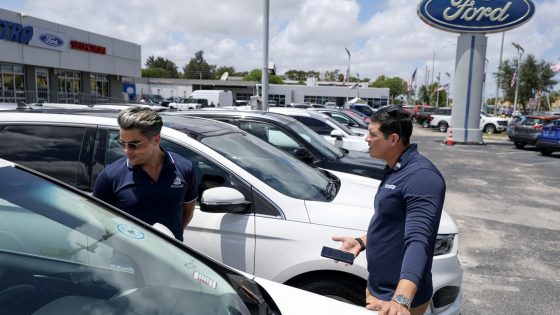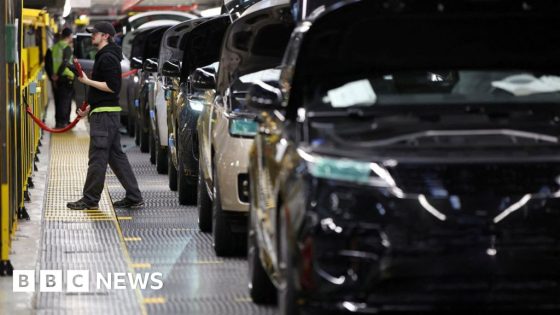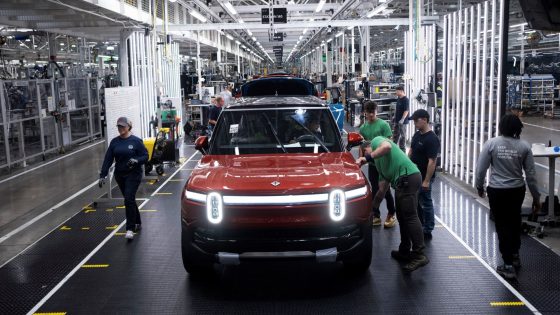Ford Motor Company has reported a significant 16.3% year-over-year U.S. sales increase for May, highlighting the automaker’s resilience amid rising tariff costs and vehicle price hikes. On June 3, 2025, the company attributed this growth to an ongoing employee pricing program, which has spurred consumer interest.
- Ford reports 16.3% U.S. sales increase.
- Employee pricing program boosts sales.
- Internal combustion vehicle sales up 17.2%.
- Hybrid models see 29% sales jump.
- All-electric vehicle sales drop 25%.
- Tariffs lead to vehicle price increases.
Leading the sales surge were traditional internal combustion engine vehicles, which saw a 17.2% increase, alongside a remarkable 29% rise in hybrid models. However, this growth was somewhat tempered by a 25% decline in all-electric vehicle sales, particularly affecting the electric F-150.
This sales performance raises an important question: how will Ford navigate the shifting landscape of consumer preferences? As markets worldwide adapt to rising costs and evolving technologies, several key points emerge:
- Traditional vehicles remain popular, even as electric options grow.
- Employee pricing strategies can effectively boost sales during economic uncertainty.
- Tariff impacts are reshaping pricing strategies for global automakers.
- Consumer interest in hybrid models indicates a transitional phase in vehicle preferences.
Looking ahead, Ford’s ability to adapt to changing consumer demands will be crucial. Will the company innovate its electric vehicle strategy to regain lost ground? The future of the automotive industry depends on how well manufacturers can respond to these evolving market dynamics.































